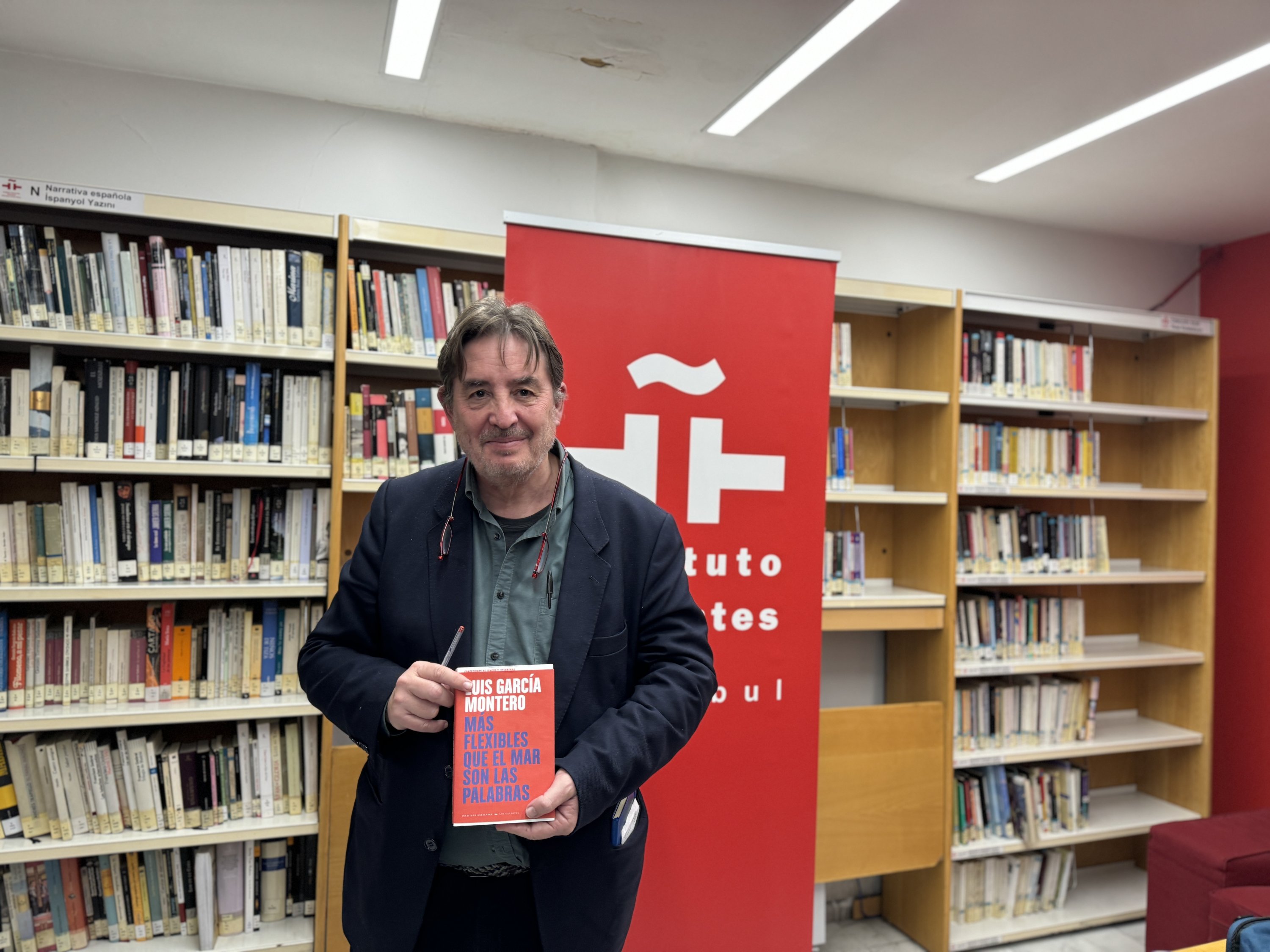© Turkuvaz Haberleşme ve Yayıncılık 2026
The director general of the Cervantes Institute, Luis Garcia Montero, a distinguished poet and writer, recently embarked on a visit to Istanbul, marking a significant milestone in the burgeoning relationship between Türkiye and the Spanish-speaking world. Montero's observations shed light on the burgeoning interest in Spanish language and culture within the bustling metropolis of Istanbul, as well as the strategic efforts to deepen cultural exchange between the two nations.
"There is no longer a dialogue between Europe and Asia, but rather a dialogue of culture, a city of movement, of people passing by. And I am very happy that the Cervantes Institute fulfills its mission here (in Istanbul) of defending interculturality and the Spanish and Latin American tradition in the dialogue of culture," he said.
Especially when I mention the increasingly growing popularity of the Spanish language and culture in Türkiye, Montero specifically pointed out that the data released for Türkiye also indicates a positive trend in this direction.
"Well, based on the data I handle and the figures available, I verify that the interest in Spanish is very remarkable in Türkiye and attracts a lot of attention among younger generations. There is increasing interest. Well, Spanish is the second most spoken language in the world by native speakers, after Mandarin Chinese. In this year's Spanish Yearbook, we have published figures. There are 500 million native speakers and 600 million speakers overall; 600 million speakers if we count those who have learned Spanish and studied Spanish," he said.
"This makes Spanish an attractive language for job searching, for those who want to travel the world, those who are looking for work outside their country, and those interested in cultures, globalization and international relations. And that is why Spanish is becoming increasingly popular for study in Türkiye and other countries," he added.

Especially since the past year, the Istanbul branch, led by director Fernando Martinez-Vara de Rey, has rapidly gained momentum, and through numerous events aimed at promoting Spanish culture, it has ensured the maximum enhancement of interaction between the two cultures.
"We have a way of working and we always say, we are proud of our work in defense of Spanish, but we do not want to fall into complacency because there is always more to be done," Montero elaborated.
"In that sense, for example, the reason for this trip has been to open a presence of the Cervantes Institute in Ankara to be able to take there everything that is already being done in terms of teaching Spanish, teacher training and Spanish culture, which is done in Istanbul, to Ankara. And here, for example, I think the relationship that has been achieved with all the Latin American embassies is very important. It is very important to know that Spanish is not only the language of Spain, but it is the language of a large international community, where Latin America, of course, has a very prominent role," he remarked.
Spanish and Turkish cultures share a remarkable closeness forged by historical interactions, geographical proximity and common cultural values. Despite their distinct backgrounds, both nations are deeply rooted in Mediterranean traditions, emphasizing warmth, hospitality and strong family ties.
Also, the historical connections between the Ottoman Empire and Spain have left enduring imprints on both cultures, evident in architectural influences, culinary exchanges and linguistic borrowings. Additionally, the shared appreciation for music, dance and vibrant festivals underscores a mutual zest for life and celebration. Whether through the intricate tile work of the Alhambra or the bustling streets of Istanbul, the affinity between Spanish and Turkish cultures transcends borders, reflecting the enduring bonds of shared experiences and cultural heritage.
Currently, in Spain, Turkish TV series are another medium of this cultural interaction as they are mostly being watched and experiencing high demand. Turkish TV series have created a sensation in Spain after being exported to the country for the first time in 2018, said Jose Antonio Anton, the vice president of Atresmedia Group, who is responsible for the import of Turkish series in Spain.
